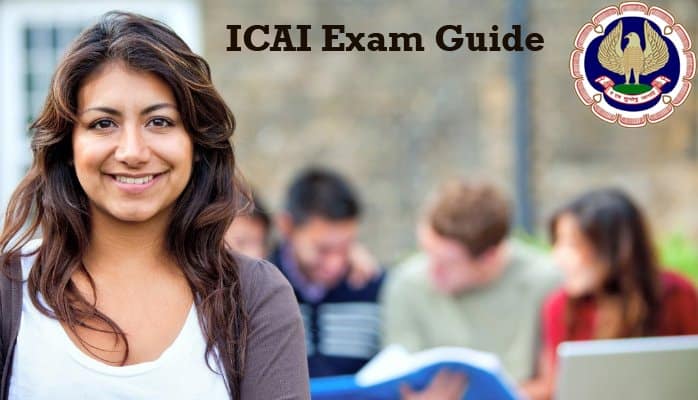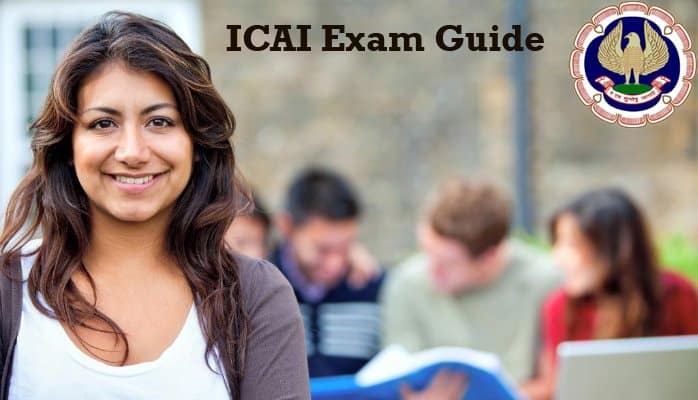A Chartered Accountant, commonly called CA, is a coveted profession in India. Over 100,000 students enroll every year for the Chartered Accountancy course offered by the Institute of Chartered Accountants of India (ICAI).
Chartered Accountants are required to audit a company’s annual accounts for owners, shareholders and the government. They keep your personal accounts updated and help save taxes.
There are a little over 250,000 Chartered Accountants in India registered as either Associate or Fellow with the ICAI. Chartered Accountants are in great demand and get paid exorbitantly.
An estimated 50,000 or about 20 percent of Chartered Accountants in India are women and this number is expected to increase.
Studying Cheap to Earn High
This is exactly what a Chartered Accountancy course offers among other professional courses. The entire three-and-half year course costs just Rs. 49,300. This is a fraction of what students studying engineering and medicine would pay.
Over 100,000 students enroll themselves for the CA course annually. A mere three percent make it to the final exams due to the inherent laboriousness in completing the program.
Since CAs deal with our money, they are required to be extremely proficient in mathematics, accountancy and related subjects while studying. Only those willing to exert extra efforts and labor relentlessly while studying can successfully complete the CA course.
An eye for detail and intolerance towards any pecuniary infarctions will serve well while studying.
The Institute of Chartered Accountants of India (ICAI)
The Institute of Chartered Accountants of India (ICAI) was established by an Act of the Parliament of India called The Chartered Accountants Act, 1949 (Act No.XXXVIII of 1949). It is mandated by the Indian government for regulating the profession of Chartered Accountancy in India.
ICAI is governed by the administrative control of the Ministry of Corporate Affairs, The It is the second largest professional body of Chartered Accountants in the world.
ICAI is based in Mumbai is the sole governing and administrative organization for the Chartered Accountancy program. ICAI conducts the course and all related exams. It qualifies successful candidates as Chartered Accountants paving their way for great careers.
Nobody can become a Chartered Accountant from any college or university in India. Foreign students and Non- Resident Indians (NRIs) can undergo the course subject to approval by ICAI. Once qualified, CAs can join a chapter nearer home. They may also enlist as members of CA associations and unions or other professional forums.
The ICAI Board of Studies (BoS) provides a comprehensive knowledge portal http://students.icai.org which guides students who wish to become Chartered Accountants.
Choosing the best route for the ICAI course
All students aspiring to study the five-year ICAI course are required to appear for the Common Proficiency Test (CPT). This is held in June and December every year.
Any student who has passed the Higher Secondary Certificate is eligible to appear for the CPT. The test is conducted at ICAI offices in Mumbai and those of ICAI’s various chapters across India. It is also held at select centers designated by ICAI.
Students who have just appeared for HSC exams and are awaiting their results can make a provisional application for CPT and provide their mark sheet to ICAI later.
Exemptions from the CPT are offered to graduates and post-graduates of the commerce stream. But only to those who have passed their university exams with a minimum 55 percent score. Graduates and post graduates from other streams whose scores are 60 percent and above are also exempted.
A goldmine of information for students desiring to become Chartered Accountants is available at resource.cdn.icai.org
Understanding the Common Proficiency Test
Students who have successfully completed their Higher Secondary Certificate (HSC) are eligible to appear for the CPT. From 2016, ICAI has revised the syllabus for the CPT. You have to register with ICAI at least six months prior to the next CPT. Registration, submission of completed forms and other formalities are to be done online at http://icaiexam.icai.org
Study material for CPT is available online on student portal of ICAI Org.
Under the revised syllabus, CPT consists of four papers from six subjects:
- Principles and practices of accounting
- Business mathematics, logical reasoning and statistics;
- Mercantile law and general English,
- Business economics plus business and commercial knowledge.
Each paper carries a total of 100 marks. The questionnaire is objective.
The CPT is rather complex. Of every 100 students who take the test, only between 30 and 35 are successful. Hundreds of coaching classes across India offer tuitions to prepare students for the CPT. But these are outside the purview of ICAI. The CA course fee does not include private coaching.
Upon successful completion of CPT, students have to register for the Integrated Professional Competence Course test (IPCC).
Getting to the Integrated Professional Competence Course (IPCC)
Upon successful completion of CPT, students are required to enroll for the IPCC, which is more complex. Registration for the IPCC The IPCC is aimed at preparing students for future careers as Chartered Accountants.
Rigorous training and preparation are required to appear for the IPCC. Applications for the IPCC are made nine months before the expected date of this test.
The IPCC consists of subjective questions. The questionnaire for IPCC is subjective. Rigorous studies and sheer grit helps students pass the IPCC.
The syllabus for IPCC (intermediate) exam is available at ICAI’s Board of Studies education portal.
This portal also features mock exam questionnaires and other relevant details that are useful to all CA aspirants.
The IPCC exam is conducted with seven papers divided in two groups:
Group-1:
- Accounting
- Business laws, Ethics and Communications
- Cost accounting and Financial Management
- Taxation
Group-2:
- Advanced Accounting
- Auditing and Assurance
- Information Technology and Strategic Management
Each paper is for 100 marks. Less than 30 percent students pass the IPCC exam. The ICAI Board of Studies knowledge portal offers vital guidelines in the form of a downloadable booklet.
This booklet educates students on way and means they can adopt for successful completion of IPCC. It can be downloaded at http://students.icai.org
The giant leap: Articleship and preparation for the final exam
Students who successfully complete the IPCC are required to register for the final Chartered Accountancy exams with ICAI. They have to search for internship with any good Chartered Accountancy firm or practicing Chartered Accountant.
CA hopefuls are required to work as interns for a period of three years. During internship, they are called Articled Assistants.
They will learn all ropes and tricks of the CA profession and assist colleagues in preparing documents for filing tax returns, help auditing of financial performance of companies and businesses.
Articled Assistants also help high-net worth individuals to prepare papers required for annual income tax returns. They are expected to give sound financial advice to customers of their Chartered Accountancy firm on various ways and means of saving taxes in a legitimate manner.
Some of these functions may not be immediate but are imminent during the three year internship.
- Some students can opt to work with corporate houses during the third year of their internship. Such interns are called Industrial Assistants.
- During internship, they are continually assessed by practicing Chartered Accountants. A great performance report from the CA can work wonders for the aspirant.
- A minimum three years internship is compulsory for students before applying for the final exam.
Developing advanced communication and IT skills
Aspiring Chartered Accountants have to undergo three courses during their three year internship. These include:
1. General Management and Communication Skills (GMCS): Articled Assistants are required to take these 15-day courses during the three years. The first GMCS course has to be completed during the first year of internship. The second has to be done within 18 months.
2. Advanced Information Technology Training: The Advanced ITT course is for 100 hours and has to be completed during the third year of internship.
The GMCS and Advanced ITT courses are to be completed before appearing for the final exam.
The big one: Final exams
This is the final barrier faced by aspiring Chartered Accountants. All skills acquired by the student during the three and half years or more will come handy while appearing for the final exam.
The final exam is conducted in two groups of subjects:
Group-1
- Paper 1: Financial Reporting (100 Marks)
- Paper 2: Strategic Financial Management (100 Marks)
- Paper 3: Advanced Auditing and Professional Ethics (100 Marks)
- Paper 4: Corporate and Allied Laws (100 Marks)
- Section A: Company Law (70 Marks)
- Section B: Allied Laws (30 Marks)
Group-2:
- Paper 5: Advanced Management Accounting (100 Marks)
- Paper 6: Information systems Control and Audit (100 Marks)
- Paper 7: Direct Tax Laws (100 Marks)
- Paper 8: Indirect Tax Laws (100 Marks)
- Section A: Central Excise (40 Marks)
- Section B: Service Tax and Value Added Tax (40 Marks)
- Section C: Customs (20 Marks)
· Important Note: From academic year 2017 an additional subject- Goods and Services Tax (GST) has been included in the syllabus. Exam papers and study materials are expected to be modified as well.
The fee structure:
| Course | Registration fee (INR) | Exam fee |
| Common Proficiency Test | 6,000 | 500 |
| IPCC | 9,000 | 1,600 |
| Articled Training (internship) | 2,000 | — |
| Final Course | 10,000 | 2,250 |
| Advanced ITT (100 hours) | 4,500 | — |
| Orientation (35 hours) | 3,000 | — |
| GMCS-1 | 5,500 | |
| GMCS-2 | 5,500 | |
| GRAND TOTAL |
49,350 |







